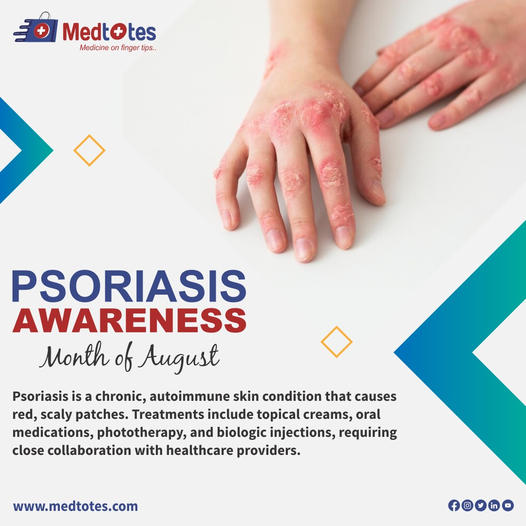Explain what psoriasis is and its impact on individuals
Psoriasis is a chronic autoimmune skin condition that affects millions of individuals worldwide. It is characterized by red, inflamed patches of skin covered with silvery scales. These patches can appear anywhere on the body, including the scalp, elbows, knees, and lower back. Psoriasis not only causes physical discomfort but also has a significant impact on the emotional and psychological well-being of those affected. The visible nature of the condition often leads to self-consciousness, social stigma, and decreased quality of life. Individuals with psoriasis may experience feelings of embarrassment, anxiety, and depression, which can further exacerbate the
Highlight the importance of raising awareness about psoriasis
Importance of raising awareness about psoriasis cannot be overstated. By increasing public knowledge and understanding of this condition, we can help combat the social stigma and misconceptions surrounding it. Raising awareness can also lead to earlier diagnosis and treatment, ultimately improving the overall well-being and quality of life for those living with psoriasis. Additionally, it is crucial to educate healthcare professionals about the latest advancements in psoriasis management, as early intervention and appropriate care can make a significant difference in managing the symptoms and preventing further complications.
Understanding Psoriasis
Psoriasis is a chronic autoimmune condition that affects the skin, causing red, scaly patches to develop. While the exact cause of psoriasis is unknown, it is believed to be a result of a combination of genetic and environmental factors. The immune system mistakenly attacks healthy skin cells, causing them to multiply rapidly and accumulate on the surface, leading to the characteristic plaques. Psoriasis can occur on any part of the body, including
Treatment Options
Treatment for psoriasis includes topical creams and ointments, phototherapy, oral medications, and biologic injections. These treatments aim to reduce inflammation, control the skin cell turnover, and alleviate symptoms. However, it is important to note that there is no cure for psoriasis, and the effectiveness of treatments can vary from person to person. In severe cases, psoriasis can significantly impact a person’s quality of life, causing emotional distress, social isolation, and even depression. Therefore, seeking medical advice and finding the right treatment plan is crucial in managing this chronic skin condition.
Lifestyle Management
In addition to medical treatments, lifestyle management plays a key role in managing psoriasis. Maintaining a healthy diet, managing stress levels, and avoiding triggers such as smoking and excessive alcohol consumption can help reduce flare-ups and improve overall skin health. Regular exercise and moisturizing the skin can also provide relief and support the effectiveness of other treatments. It is important for individuals with psoriasis to prioritize self-care and make necessary adjustments to their daily routines to minimize the impact of this condition on their lives.
Conclusion
In conclusion, while psoriasis can be a challenging condition to manage, adopting a holistic approach that includes healthy lifestyle choices and self-care can greatly improve the quality of life for individuals with this condition. By taking proactive steps to care for their skin and overall well-being, individuals with psoriasis can better manage flare-ups and enjoy healthier skin. It is important to consult with a healthcare professional for personalized advice and treatment options.

